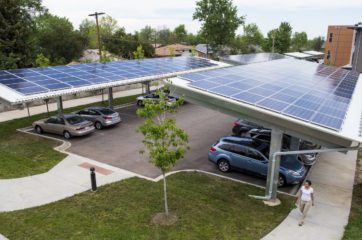by MARIA VIRGINIA OLANO POLICY AND RESEARCH FELLOW
After much speculation, former Massachusetts Governor and 2012 Presidential Candidate Mitt Romney announced last week that he is running for a Senate seat in Utah. Romney has constantly shifted his stance on climate change and environmental policy, which makes predicting his potential legislative stance on green issues in the Senate challenging.
While Governor of Massachusetts, he defended the science that shows human-induced causes of climate change, and has in the past shown a good record of supporting climate action and policy. He pushed to close old coal-fired plants and his Administration helped create the Regional Greenhouse Gas Initiative (RGGI), a cap-and-trade program in the Northeast. Romney also created the first climate plan in Massachusetts in 2003, in which he emphasized the economic incentives for taking action on environmental policy. The plan was focused on pollution and greenhouse gas emissions reductions and was intended to incentivize innovation in renewable technologies, improve energy efficiency and set environmental protections in the state.
However, Romney adopted a different tone when running as the GOP candidate for president in 2012. He withdrew Massachusetts from RGGI and even claimed that, “we don’t know what is causing climate change on this planet” and “spending trillions to reduce CO2 emissions is not the right course for us.” Once on the campaign trail, his speeches portrayed a stark flip from his previous stances as Governor. He advocated for increased oil and gas production domestically, and supported fracking, claiming energy independence is imperative for U.S. interests. He also supported drilling in Alaska’s Arctic National Wildlife Refuge and has consistently opposed any form of carbon tax. It may be that Romney was simply aiming to appease the Republican base and get ahead in his campaign, but his actions may be a dangerous signal as to his actual political convictions.
Since his election loss, Romney has maintained a fairly consistent stance on the urgency of climate action. Last year, he said in an interview, “I happen to believe that there is climate change, and I think humans contribute to it in a substantial way, and therefore I look with openness to all the ideas that might be able to address that.” He has also long been an advocate for economically sound policy, meaning there is a chance he will support green tech investment in the future.
While Utah holds a mostly Republican, conservative constituency, there has recently been heavy pushback to the Trump Administration’s shrinking of national monuments in the state. Late last year, President Trump announced during a visit to Utah that he was trimming two national monuments (Bears Ears and Grand Staircase-Escalante) by 2 million acres. Days after the announcement, five lawsuits were filed against the Administration by tribal nations along with environmental and scientific groups in the state, arguing that the President does not have the authority to change a monument’s boundaries under the 1906 Antiquities Act. This blowback to the President seems to signal a more liberal stance from people in Utah when it comes to the conservation of national monuments and federal lands. It will be interesting to see how this dynamic plays out in the event of Romney winning a Senate seat representing Utah.
During the 2016 presidential campaign, Romney was one of the GOPs most vocal critics of Donald Trump, labeling him a ‘phony’ and ‘a fraud’. Last week there was potential hope for a Republican seat in the Senate held by someone who would not be afraid to question the President’s judgement and perhaps pursue a more promising agenda when it comes to climate. And yet the announcement early this week of the President’s endorsement of Romney’s candidacy and Romney’s subsequent acceptance of that endorsement, brings this into question.
A big question mark looms over what Mitt Romney’s stance on climate and environmental policy will be once he is no longer being pushed by the politics of a mostly Democratic state such as Massachusetts. There is hope that he will continue to pursue a climate-friendly approach to legislation, however, there is also good reason to be skeptical. Once he is no longer constrained by blue voters or legislators, it is also likely that Romney will once again take a stance more closely aligned to traditional GOP views by questioning climate science and opposing green initiatives.
 MARIA VIRGINIA OLANO POLICY AND RESEARCH FELLOW
MARIA VIRGINIA OLANO POLICY AND RESEARCH FELLOW
Maria Virginia is a young professional with experience in non-profit and coalition organizing in the areas of disarmament and human rights. She is currently pursing a Masters degree in Security and Resilience Policy at Northeastern University, where she also completed her undergraduate degree in Political Science. During her time at Northeastern she studied abroad in Japan, India and Saudi Arabia and worked as a journalism intern in Bosnia Herzegovina and Turkey. She is passionate about travel and photography and in her free time loves to watch movies, eat lots of food and read.









